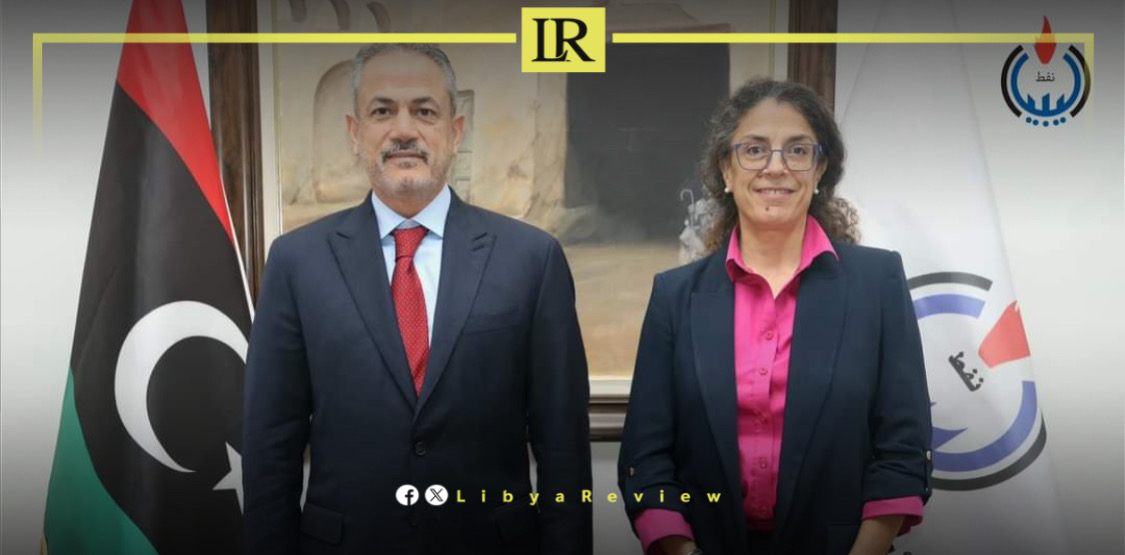On Thursday, the United Nations Support Mission to Libya (UNSMIL) called for Libya’s oil revenues to be managed through the Central Bank of Libya (CBL) following the National Oil Corporation’s (NOC) decision to lift the force majeure on oil production.
This move restores the country’s oil operations after months of shutdowns, marking a critical step toward Libya’s economic recovery.
Earlier today, Farhat Bengdara, Chairman of the NOC, met with Acting UN Envoy to Libya, Stephanie Khoury, at the NOC headquarters in Tripoli.
They discussed the resumption of oil production, the sustainability of operations, and the importance of maintaining the NOC’s independence despite political challenges. Bengdara reaffirmed the NOC’s commitment to transparency and equitable distribution of oil revenues across Libya, highlighting the corporation’s cooperation with regulatory bodies.
The UN welcomed the NOC’s decision to restart oil production and exports but emphasized that the revenues must be handled by Libya’s Central Bank to ensure they are fairly distributed and used for the benefit of all Libyans. The UN stressed the need for Libya’s oil wealth to support national development, economic stability, and improved living standards for its citizens.
This development came shortly after the NOC officially lifted the force majeure on oil production, following an announcement by Parliament-appointed Prime Minister Osama Hammad. The decision to resume oil operations was made in response to instructions from the Speaker of the House of Representatives, after successful efforts to resolve the long-standing leadership crisis at the Central Bank of Libya.
The lifting of the force majeure coincided with the appointment of Naji Issa as the new Governor of the Central Bank of Libya. Issa officially assumed his duties during a ceremony at the Central Bank in Tripoli, alongside his newly appointed deputy, Marai Al-Barassi. Their appointments were unanimously confirmed by the House of Representatives, bringing much-needed stability to Libya’s financial leadership.
One of Issa’s first actions as governor was to suspend the foreign currency tax, in compliance with recent court rulings. This move is expected to ease financial pressures and stabilize the country’s economy, severely strained by years of conflict and political division.


